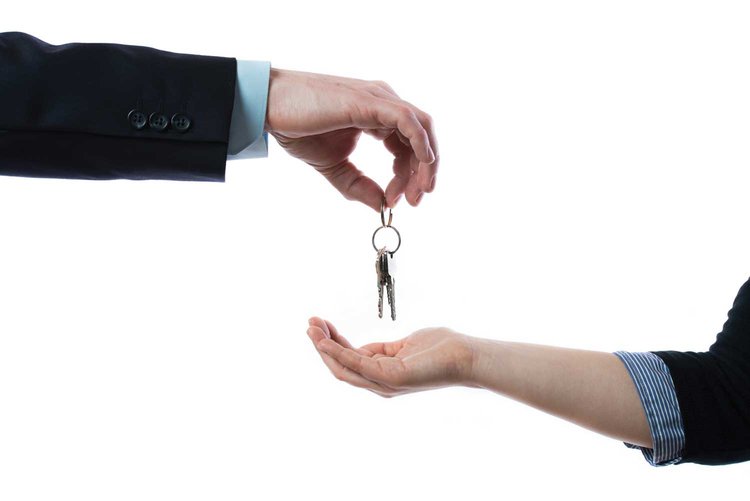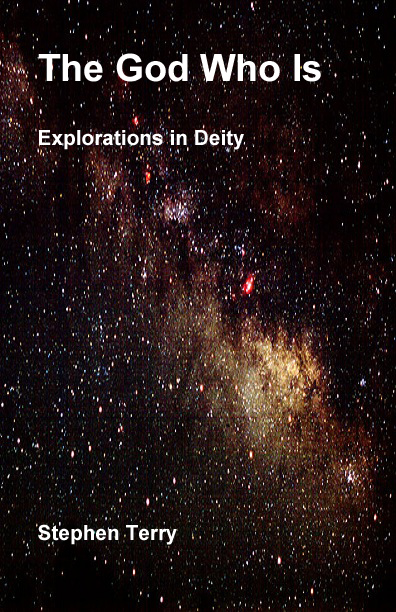Stewards
after Eden
Stephen
Terry
Commentary
for the February 3, 2018 Sabbath School Lesson
 “This,
then, is how you ought to regard us: as servants of Christ and as those
entrusted with the mysteries God has revealed. Now it is required that those who
have been given a trust must prove faithful.” 1 Corinthians 4:1-2, NIV
“This,
then, is how you ought to regard us: as servants of Christ and as those
entrusted with the mysteries God has revealed. Now it is required that those who
have been given a trust must prove faithful.” 1 Corinthians 4:1-2, NIV
In Genesis, chapter 24, Abraham’s nameless steward
faithfully completes the task of finding a wife for his son, Isaac.[i] This may have been his
servant, Eliezer of Damascus,[ii] though why he would not
be named on this important mission is a mystery. He took camels and gifts and
set out for Nahor in the land of the Arameans, an area we associate with Syria,
today. Once there he meets the family of Rebekah and Laban and convinces them
to allow Rebekah to return with him to marry Isaac. Uncle Laban later becomes a
refuge and then a problem for one of Rebekah’s sons, Jacob or perhaps it is the
other way around, depending on perspective, as Jacob has a tendency to deceive,
a tendency that Laban angrily points out to his nephew. However, this may be
Laban’s own family brokenness coming back to bite him, for it is his sister,
Rebekah, who abets Jacob on the road to deception, encouraging him to deceive Isaac
regarding the birthright blessing.[iii] One can only wonder why
Rebekah did this, for she gained nothing from it. We have no further encounters
between Rebekah and Jacob after Genesis, chapter 29, so it is likely she died
without ever seeing her son again. It is possible that she damaged the family relationships
irredeemably by her actions, for her death is not even recorded as part of the
narrative, except as an aside indicating she and Isaac were buried in the same place.
This is strange considering the death of her nurse, Deborah’s, death was
significant enough to merit recording. One can only wonder at the family
dynamics behind all of that.
While Eliezer was such a faithful steward that Abraham,
before he had a son, had considered making him his heir, faithful stewardship
has all too often been the exception rather than the rule for humanity. Beginning
with Adam and Eve who were given stewardship over the earth and failed to honor
that trust, betraying it for a piece of enchanted fruit, the chain of betrayal
and failure is long and sordid. Cain killed his brother Abel and set in motion
a sequence of events that got so evil and depraved that only a cataclysmic
flood was able to bring about a reboot. Nonetheless, things only improved for a
while.
One can see an illustration of the problem through a singular example. Man had
been originally created to enjoy a vegetarian diet in Eden, but after the
Noahic flood, man was given the animals for food as well. Mankind has responded
to this in several ways, but perhaps the most significant are two opposing
viewpoints. The first is an attempt to return to Eden, even though the path to
that paradise has been closed to us. Those who attempt this eschew all meats,
claiming that even though we may have been granted the animals for food, God
intends us to eat only vegetables and fruits. This effectively makes God a liar
in what He told Noah in regards to the matter and rejects the example of Christ
who undoubtedly participated in the Passover Seder with its main course of
lamb. Faithful stewards tend to live in harmony with their master’s directives,
not in opposition to them. But lest we give the carnivores among us a pass, we
should understand the problem here as well. First of all, as can be seen from
the Noahic account, only certain animals were considered clean for food.[iv] Had it been open season
on all animals, those species that only had one pair on the ark would have died
out. A more detailed delineation between what are considered clean and unclean
animals can be found in Leviticus.[v] But even this provision,
intended to be a blessing to mankind, was abused, and instead of killing only
for food, mankind began to kill for sport. The needless killing begun by Cain
with Abel spilled over to the animals. What master would condone the needless
destruction of his property? The animals, as well as mankind, may be said to
belong to God in the same way that something I create belongs to me. Someone
who chose to destroy what I had made would be showing disrespect and enmity
toward me, and if they did so when I had entrusted the item to their care, it
would be nothing less than betrayal. Yet, this is what we have done, and the
creation suffers at our hands.[vi]
When Jesus spoke of handing the keys to Peter,[vii] this was a metaphor for the
significance of rebirth for those who chose salvation in the kingdom of God.
They would become His children even as Adam was God’s child. Reborn and
restored, those who followed the example of Peter and the other apostles would
now have the keys of stewardship that Adam had rejected. In turn, we and they
were to recruit others to the kingdom, others who would accept the
responsibility of stewardship. So how have we done?
When one walks into the room where a toddler is and
smells a certain smell, it reveals that someone needs a diaper change. But
imagine you walk into that room and the mother is there, but she is watching
television and apparently oblivious to the smell, she does nothing to deliver
the child from the situation. Of course the child tries to go on, but
eventually the mess that results ends up being much worse than it might have originally
been to clean up. Now imagine that God is the one walking into the room, and we
are the unconcerned mother, pursuing our own interests. This is not too far
from reality. Our planet is polluted. On our watch, our oceans have become
choked with garbage and chemicals, the air we breathe is so filled with
pollutants that many places have systems set up to monitor how bad it is in
order to issue warnings for public health, our drinking water is often tainted
and major corporations are doing their best to buy up the clean water sources
in order to have a monopoly over what remains. Our food supply, yes even
vegetables and fruits, is frequently recalled due to contamination. In addition,
we have hunted and fished many species to the verge of extinction, if not already
there. It appears we have not faithfully discharged the trust placed in us.
At this point, some might feel we should just give up as it is too overwhelming
to do anything about. We are like teenagers who have been told to clean our
room and suddenly the result of our failure to keep it clean and organized hits
us as we realize how much needs to be done. But we know the task must be done,
so we set aside what we may have wished to be doing and one by one deal with
each things that needs ot be
addressed. Bit by bit our room begins to look like a habitable bedroom again,
and we begin to appreciate the benefits of living responsibly. We can do the
same thing with the earth. The entire task may seem overwhelming, but if we
break it down into manageable tasks and tackle them individually, eventually we
will reach the same result and our planet could become much more livable.
When we are old enough to own a car, it is not enough to simply put gas in it
and drive it about. We must maintain the vehicle as well. Of course, we have
our own free will, and we can choose not to. But if we don’t change the oil,
replace the battery and tires as needed, or simply choose not to inflate those
tires properly, we will soon be walking everywhere. We have the same choice
when it comes to everything that has been placed in our care, whether it is our
own home and yard, our neighborhood, our community, our state, our country, or
the earth. On every level, the effects of good stewardship are felt by the
things done that are close at hand. If the homes are right, everything else
will be as well. In order to set them right, we must first set ourselves right
and find the perspective that helps us to see our responsibility as stewards.
Acknowledging God as creator and owner of everything is a first step toward
developing that perspective. We were not created to sit around on our rears
waiting for some miracle of evolution to somehow turn us into a species that
cares about the world. That is already available to us. First we have to admit
that we have blown it, and we have acted selfishly and not for the common good.
We need not worry about what others may think, for we have all acted that way.[viii] It is necessary to
acknowledge where we are before we can find how to get somewhere else. Then
once we have acknowledged that, we can begin walking toward God and begin to
see things from His perspective. He will give us the Holy Spirit to help us see
and understand what needs to be done. As we work in service to others as
faithful stewards of all that is in our care, we will discover more about
ourselves than we ever thought possible. We may even discover that in saving
the world, we are saving ourselves.[ix]
